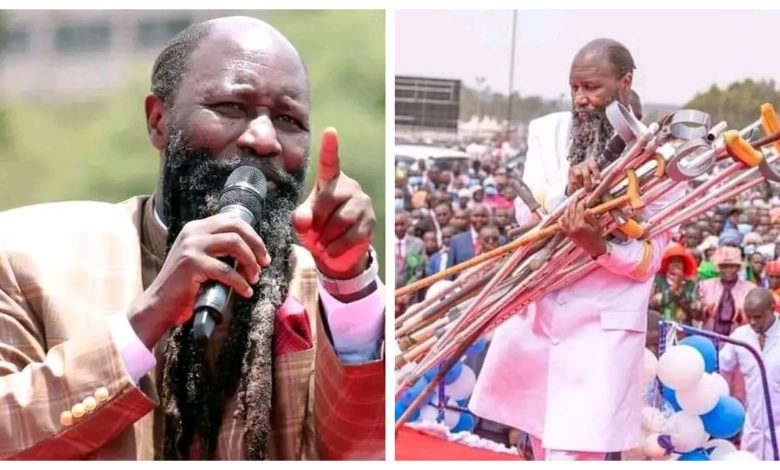In recent times, the Kenyan government has intensified its efforts to curb the activities of pastors engaging in exploitative practices, with one of the prominent figures, Prophet Dr. David Owuor, coming under scrutiny. Despite warnings from authorities to cease his activities or face legal consequences, Prophet Owuor has countered with a caution of his own.
Proclaiming to engage in daily conversations with Jesus Christ and exhibiting miraculous acts such as healing the sick and raising the dead, Prophet Owuor has garnered a substantial following in Kenya. Notably, his large-scale crusades, characterized by preaching and performing miracles, have added to his widespread recognition.
However, the credibility of Owuor’s claims and the authenticity of his miracles have faced skepticism and criticism, especially from the Kenyan government. Accusations of fostering a cult-like following, where adherents willingly relinquish their possessions and funds in pursuit of salvation, have been leveled against him.
The government’s crackdown on pastors involved in such activities has not spared Prophet Owuor, who responded by issuing a warning, asserting that any attempt to arrest him would be met with divine retribution.
This situation has underscored the prevalence of false prophets and cult-like religious groups in Kenya. While acknowledging the positive contributions of many pastors to their communities, it is crucial to distinguish them from those who exploit the vulnerability and desperation of followers for personal gain.
The government’s actions against such pastors are deemed essential to safeguard the public from potential harm, encompassing both financial and psychological risks. Nevertheless, it is essential to recognize the deep-seated religiosity and faith in Kenya, where religion holds significant sway in the lives of many individuals. The actions of false prophets can have devastating effects on their followers, impacting their lives and communities.
Prophet Owuor’s claims and the subsequent government crackdown prompt reflection on the nature of faith and religion. Balancing skepticism toward seemingly extraordinary claims with an acknowledgment of the power of faith is necessary. The imperative is to promote critical thinking and healthy skepticism to prevent individuals from falling victim to false prophets and manipulative religious organizations.
Blind faith and unwavering devotion, as evidenced in extreme cases where followers have sacrificed possessions and lives for charismatic leaders, underscore the potential dangers. The government’s crackdown, therefore, should be perceived not as an assault on religion or faith but as a vital measure to shield the public from exploitation and manipulation.
Emphasizing the importance of education and awareness regarding the hazards posed by cult-like organizations, it becomes crucial to encourage people to question and verify claims made by religious leaders. The ongoing situation involving Prophet Owuor and the government’s intervention serves as a poignant reminder of the need for critical thinking and vigilance against the perils of blind faith and manipulation in the realm of religious practices.



